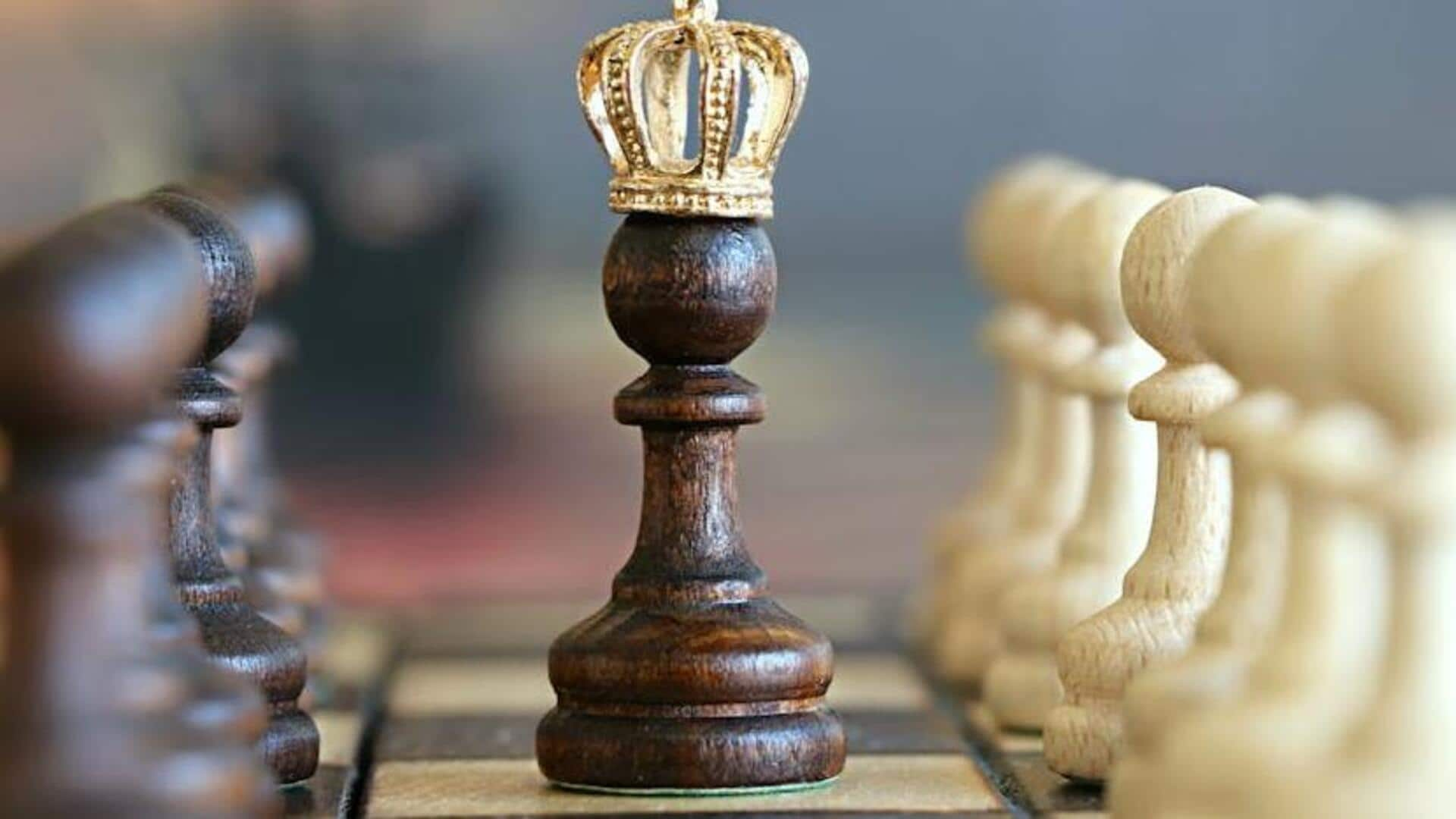
Ways to reinforce learning with chess
What's the story
Chess is more than just a game; it's a mental workout that strengthens your brain and teaches you how to think strategically. In fact, it's one of the most powerful brain-boosting tools out there. It enhances your cognitive abilities, strengthens your problem-solving skills, and boosts your memory. This blog post reveals 5 secrets to supercharge your learning with chess, regardless of your age or skill level.
Thinking ahead
Develop critical thinking skills
Playing chess demands strategic foresight and the ability to predict an opponent's moves. This fosters critical thinking skills by prompting players to anticipate multiple outcomes before executing decisions. By scrutinizing the potential consequences of each move, players cultivate the ability to critically evaluate options, which is applicable to real-life problem-solving scenarios.
Memory boost
Enhance memory capacity
Chess requires memorization of the rules of the game, the positions of all pieces on the board, and potential strategies that can be utilized during play. Regular practice of chess strengthens both short-term and long-term memory by exercising the brain's capacity for information storage and recall. This improvement in memory can significantly benefit academic learning and retention of new knowledge.
Strategic planning
Improve planning and foresight
A key component of chess is planning several moves ahead and adjusting your strategy as the board changes. This element of the game fosters strategic thinking about future actions and their potential outcomes. Developing strong planning skills in chess translates to better management of everyday tasks and school projects, making it a beneficial learning tool.
Solving puzzles
Boost problem-solving abilities
Every game of chess is a pressure cooker of unique problems demanding your immediate solutions. You're constantly thrown into the deep end of the pool, wrestling with the complications your opponent is hurling at you, while simultaneously trying to cook up your own tricky schemes. This relentless mental workout does wonders for your problem-solving skills, training you to tackle complex challenges with a systematic yet creative approach.
Learning resilience
Encourage patience and persistence
Chess isn't just about victories; defeats also hold valuable lessons. It cultivates patience, as players need to wait for the opportune moment to strike. And the ability to bounce back from setbacks within a game fosters a mindset of perseverance, of not letting immediate obstacles or failures deter you from your long-term goals. These are lessons in resilience, applicable far beyond the 64 squares!